
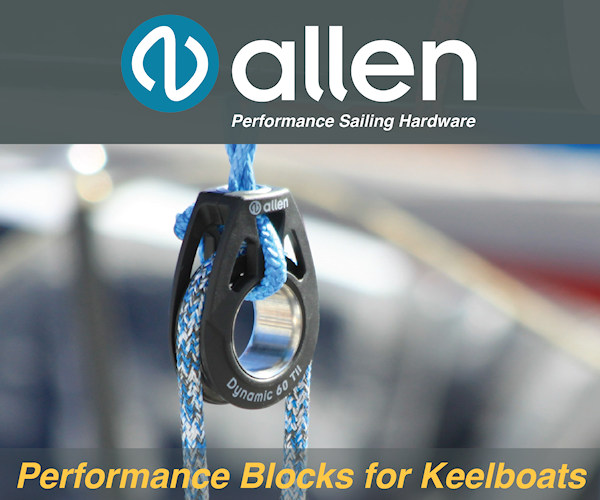



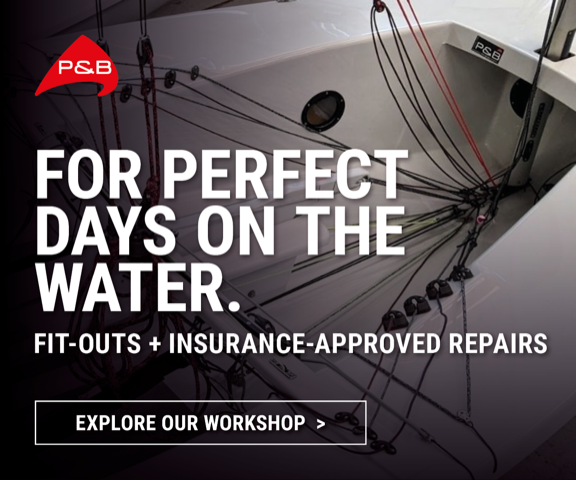



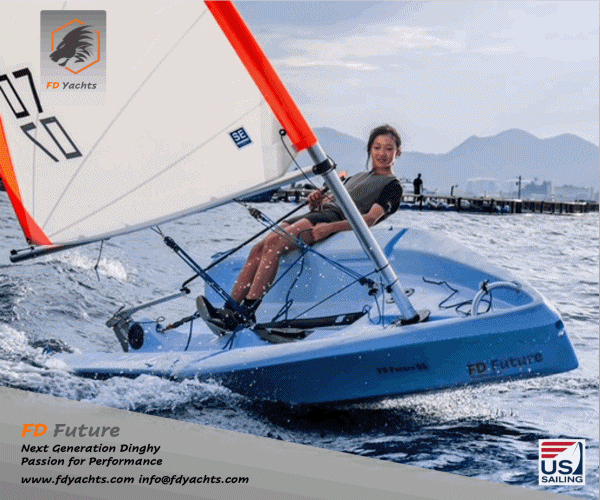


Boats for sale
| Laser 140101 Tynemouth |
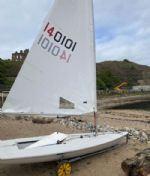 |
| Laser 161752 Tynemouth |
 |
| Laser 28 - Excellent example of this great design Hamble le rice |
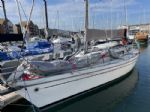 |
List classes of boat for sale |
That Extra 2-3% |
Post Reply 
|
Page <1 4567> |
| Author | |
MikeBz 
Really should get out more 
Joined: 21 Apr 04 Location: United Kingdom Online Status: Offline Posts: 536 |
 Post Options Post Options
 Quote Quote  Reply Reply
 Topic: That Extra 2-3% Topic: That Extra 2-3%Posted: 10 Feb 17 at 11:32am |
^^^^^^ what he said. Except that I already knew who you were
 |
|
 |
|
Steve411 
Really should get out more 
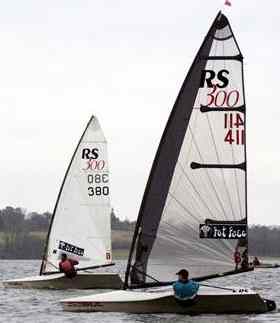
Joined: 09 Sep 08 Location: Cheddar, Somerset, England Online Status: Offline Posts: 705 |
 Post Options Post Options
 Quote Quote  Reply Reply
 Posted: 10 Feb 17 at 10:53am Posted: 10 Feb 17 at 10:53am |
Thank you!
|
|
 |
|
Chris 249 
Really should get out more 

Joined: 10 May 04 Online Status: Offline Posts: 2041 |
 Post Options Post Options
 Quote Quote  Reply Reply
 Posted: 10 Feb 17 at 10:44am Posted: 10 Feb 17 at 10:44am |
|
/\
That was such a great post I went to the RS300 page to find out who you were. Well done!
Edited by Chris 249 - 10 Feb 17 at 10:47am |
|
|
sailcraftblog.wordpress.com
The history and design of the racing dinghy. |
|
 |
|
Steve411 
Really should get out more 

Joined: 09 Sep 08 Location: Cheddar, Somerset, England Online Status: Offline Posts: 705 |
 Post Options Post Options
 Quote Quote  Reply Reply
 Posted: 10 Feb 17 at 10:18am Posted: 10 Feb 17 at 10:18am |
|
There's no silver bullet - it's about making small gains in lots of areas.
Training goes without saying - I typically train 2 or 3 times as much as I race. General time on the water helps but targeted training is so much more efficient. Be brutally honest with yourself about strengths and weakness - upwind in waves, upwind in light winds in a slop, downwind in waves, straightline speed etc. There will be up to 20 of these. Mark yourself out of 10 (honestly) and work on anything less than a 7 or 8. There will be non-racing bits as well on this list too - understanding tidal flows at the venue, fitness etc. Mark yourself on these too. I used to make a note of every mistake I'd made in a race (bad start, overstanding the windward mark, missing a shift etc). It's a bit nerdy but it helps highlight where you need to improve. Whenever I've been to class training it seems most of the emphasis is on tacking and gybing. That's fine and they need to be done efficiently - but really how often do you tack and gybe in a race - say, 4 tacks a beat and one gybe per lap (unless in an asymmetric)? My view is to concentrate much more on straightline speed - upwind and down. If you can eke out a few boatlengths upwind you'll be a tactical wizard. It can be a bit boring sometimes just sailing upwind concentrating on speed and heeling angle, but it helps. For that reason, I mostly do a maximum of an hour's training at a time before stopping for a break (coming in for a cup of tea or stopping on the water for 5 minutes) to ward off boredom. I think downwind speed is more important than upwind speed. All the top guys are searingly quick downwind. Think about it. In most hiking boats it's impossible to gain more than a fraction of a knot upwind in most conditions. Downwind you can double your speed by getting on waves properly. Practise! You will still need to be in the top 10% at the first mark though. Fitness is paramount too. A few years ago I was out of work for a few months. In between job hunting I spent a lot of time in the gym and out running. I thought it would make a slight difference to my speed. It actually made a massive difference - not necessarily on the first lap of a race when everyone's still sitting out hard, but on subsequent laps when fatigue starts to set in. I mostly do a lot of running and leg exercises. Finally, even at this relatively bottom end of the sport, psychology is more important than most people realise. I like to be comfortable in new surroundings. If I haven't been to a venue before, and there isn't a pre-Nationals event there, I try and spend half a day sometime ahead of the regatta just wandering round, getting my bearing etc. I just find it helps me. I think this also why you find people who do really well at open meetings but often fail to deliver at Nationals. Too much personalised pressure, feeling uncomfortable in new surroundings? If you've done the preparation - training, fitness, tides etc you'll feel confident and that's a tremendous help. You don't need to tell anyone but if you know you're the one who's put the hours in over the winter when you'd have preferred not to go out, got up early to go to the gym etc, you'll have an inner smugness (sorry, confidence) that is difficult to match. I've found all of the above has worked for me. Others no doubt have different approaches which are just as valid if not more so, but I think the more you think about your sailing the more you'll understand the changes you need to make.
|
|
 |
|
Oinks 
Far too distracted from work 
Joined: 24 Oct 14 Location: Bandol Online Status: Offline Posts: 267 |
 Post Options Post Options
 Quote Quote  Reply Reply
 Posted: 10 Feb 17 at 12:17am Posted: 10 Feb 17 at 12:17am |
|
There's that thing about "being in the groove",when everything rather mystically all suddenly comes together. I've had that, but can't for the life of me quantitatively or qualitatively ascertain what it was so I could reproduce it on a regular basis!
|
|
 |
|
Chris 249 
Really should get out more 

Joined: 10 May 04 Online Status: Offline Posts: 2041 |
 Post Options Post Options
 Quote Quote  Reply Reply
 Posted: 10 Feb 17 at 12:16am Posted: 10 Feb 17 at 12:16am |
|
IMHO a lot of it is the intensity - trimming boat and sails more often but more subtly. I find the hardest thing of all to get crews who are used to the middle of the fleet to do is becoming intense enough; trimming the jib every time the boat bears down a wave while they semi-stand and smoothly move aft at the same time, etc.
Another thing is what some sports psychs call "self efficacy", I think - the knowledge that it is only logical that you will do well because you have done all the training. It's quite different from the hyped-up self-belief, and IMHO it's that grounding that allows you to grind back from bad legs without blowing up psychologically. Another thing is fleet management; sailing for consistency and (depending on the regatta) keeping the right sort of eye on your rivals. That doesn't mean always tightly covering them, but it does mean not charging off into corners and being prepared to sail percentages. It's also important to be able to identify your path to improvement; are you getting good starts and then gradually losing ground to the boats around you (= boatspeed issues) or are you losing ground in big chunks (= tactics) or falling over (= boathandling). The better sailors seem to spend more time identifying the specifics of where they must improve. I just did a nationals in a class I've sailed in for years, but basically dropped out of several years ago. With only half a dozen training sessions but with a new sail to replace my old one (which despite only being used for nationals and being meticulously cared for had been getting slow without my realising) the speed was great - it's just that the lack of practise caused fitness and gybing issues, some dodgy mid-line starts, stuffing up one layline and crashing out at the very last gybe mark, which put me from about 5th out of 74 down to 9th. However, those specific performance issues have been identified and now that I'm getting back into the class seriously it's an easy matter to do some specific training to get back to the front. Perhaps the key, once your speed is OK is very specifically identifying every place you lost time and places and then eradicating the problem in training and preparation. That can include (as in my case) being more aware of my tendency to not notice my sails ageing when they are still capable of giving good results.
Edited by Chris 249 - 10 Feb 17 at 12:43am |
|
|
sailcraftblog.wordpress.com
The history and design of the racing dinghy. |
|
 |
|
davidyacht 
Really should get out more 
Joined: 29 Mar 05 Online Status: Offline Posts: 1345 |
 Post Options Post Options
 Quote Quote  Reply Reply
 Posted: 09 Feb 17 at 10:35pm Posted: 09 Feb 17 at 10:35pm |
|
Wish I could sail consistently upright and not wiggle the tiller so much
|
|
|
Happily living in the past
|
|
 |
|
NickM 
Far too distracted from work 
Joined: 27 May 09 Location: United Kingdom Online Status: Offline Posts: 328 |
 Post Options Post Options
 Quote Quote  Reply Reply
 Posted: 09 Feb 17 at 10:28pm Posted: 09 Feb 17 at 10:28pm |
|
Being really up for it on the day. This is the sort of thing elite athletes have shrinks for. It happens all too rarely but I am amazed how much better I sail when, for whatever reason, I turn up really motivated. Better concentration, pushing the line at the start, fighting back to regain any lost places etc. Somehow I find my calls on wind shifts turn out better and I'm not getting sailed over on the reaches. Also didn't Eric Tyname write about not conceding defeat to the "better guys" in your mind before you start?
Edited by NickM - 10 Feb 17 at 6:29pm |
|
 |
|
Rupert 
Really should get out more 
Joined: 11 Aug 04 Location: Whitefriars sc Online Status: Offline Posts: 8956 |
 Post Options Post Options
 Quote Quote  Reply Reply
 Posted: 09 Feb 17 at 9:49pm Posted: 09 Feb 17 at 9:49pm |
|
Trouble comes when you concentrate on concentrating, not on you sailing! Fixation on telltales and the patch of water beyond them upwind.
|
|
|
Firefly 2324, Puffin 229, Minisail 3446 Mirror 70686
|
|
 |
|
Oinks 
Far too distracted from work 
Joined: 24 Oct 14 Location: Bandol Online Status: Offline Posts: 267 |
 Post Options Post Options
 Quote Quote  Reply Reply
 Posted: 09 Feb 17 at 9:44pm Posted: 09 Feb 17 at 9:44pm |
|
All good stuff...I'm adding it all to the spreadsheet. Now coaching, definitely..but .was hoping that suggestions here might alleviate the time spent doing that - how many hours coaching, ús per hour - ok if yer still at school and mum and dad are paying. Time on the water - good part of 45 years. Concentration...thats another good one...but what are the good guys concentrating on that I'm not. Talent...in abundance in the 200 fleet
 ... ...
|
|
 |
|
Post Reply 
|
Page <1 4567> |
| Forum Jump | Forum Permissions  You cannot post new topics in this forum You cannot reply to topics in this forum You cannot delete your posts in this forum You cannot edit your posts in this forum You cannot create polls in this forum You cannot vote in polls in this forum |
Bulletin Board Software by Web Wiz Forums® version 9.665y
Copyright ©2001-2010 Web Wiz
Change your personal settings, or read our privacy policy
Copyright ©2001-2010 Web Wiz
Change your personal settings, or read our privacy policy












 Printable Version
Printable Version Delicious
Delicious Digg
Digg Facebook
Facebook Furl
Furl Google
Google MySpace
MySpace Newsvine
Newsvine reddit
reddit StumbleUpon
StumbleUpon Twitter
Twitter Windows Live
Windows Live Yahoo Bookmarks
Yahoo Bookmarks Topic Options
Topic Options